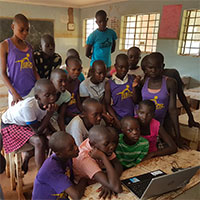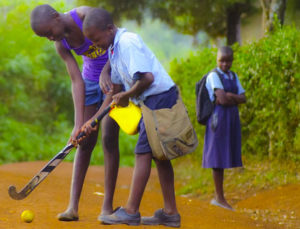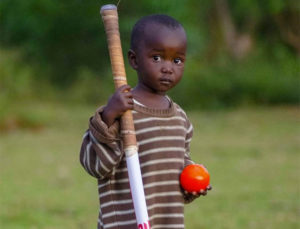THE BIGGER PICTURE
WHAT IS DIFFERENT ABOUT TUNZA?
At TUNZA, we nurture talent whatever they may be. We use sport as a vehicle for progress, however Tunza is not just about the sport, it is about making a difference; about improving lives and breaking the cycle of poverty. We are raising global changers. A group of empowered young people who will impact change in their society and positively enrich their lives.
But then, “what’s new? We have heard that before. What sets TUNZA apart from the rest?”
Professionals in the field have suggested that a small non-profits best chance of success is to join an already established organization with similar vision and mission. However, our philosophy is very unique when it comes to the empowerment of young people. Many organizations around us, may have the same goals as Tunza but our approach on how to arrive at those goals differ immensely. Most community based empower women, girls, or the marginalized, provide tools of trade and enhance performance skills for economic success. Communities will accept whatever there is, because they have no other option. So, the tools of trade provided, impose rather than expose what they really desire to do with their lives.
 At TUNZA, we don’t believe in just providing tools of trade, we go even further. Handing out sports gear and equipment is not enough. Do the kids possess the inner desire to pursue the dreams you are imposing? Do they have a dream of their own? Do they have the inner drive? These are the questions Tunza is trying to answer. We believe it is better to have a personal dream and preference for what you want to do in life, and have someone help you pursue it, than have them walk into your life with their own belief system of what is best for you.
At TUNZA, we don’t believe in just providing tools of trade, we go even further. Handing out sports gear and equipment is not enough. Do the kids possess the inner desire to pursue the dreams you are imposing? Do they have a dream of their own? Do they have the inner drive? These are the questions Tunza is trying to answer. We believe it is better to have a personal dream and preference for what you want to do in life, and have someone help you pursue it, than have them walk into your life with their own belief system of what is best for you.
At the most fundamental level, sport and play are a child’s right, as detailed in article 31 of the Convention on the Rights of the Child: “…recognize the right of the child to rest and leisure, to engage in play and recreational activities appropriate to the age of the child and to participate freely in cultural life and the arts.” – UNICEF. We give access to every child to play sport in our program, because it is their right. During this of period time, we identify their strengths, sports or otherwise, and help them by breaking down barriers that would prevent their success.
As much as we provide coaching, we also shape their mentality about life. The youth in Africa have been influenced by the world they see through the screen. This has helped them keep up with modern trends. They get exposed to different approaches towards lifestyles in their childhood development and it provides and aspiration to pursue big dreams. Social media especially has played a great role in providing youth all over the world, a similar platform on how to deal with issues affecting them. However, not all kids have this privilege.
 In Kenya, the previous generation, now aged 35 years and above, attest that corporal punishment overruled all other developmental approaches. This resulted in creating fear, which took away precious freedom. Freedom of expression, freedom to form an opinion, freedom to dare dream. It hindered parents from positively reassuring their kids that they were special, or beautiful or worthy. This affected the ability to speak up for oneself and resulted in either a low self-esteem during teenage years or acting out. “The ability to explore ideas and self-worthiness diminishes when you think you don’t matter. By the time you are free to form your own opinion, free to stand for your rights, free to dream, so much time has elapsed. There was little opportunity for dialogue with elders. Corporal punishment both in school and at home was the main communication tool with the notion -spare the rod, spoil the child -when you got the beating, you knew you were so special” Rael.
In Kenya, the previous generation, now aged 35 years and above, attest that corporal punishment overruled all other developmental approaches. This resulted in creating fear, which took away precious freedom. Freedom of expression, freedom to form an opinion, freedom to dare dream. It hindered parents from positively reassuring their kids that they were special, or beautiful or worthy. This affected the ability to speak up for oneself and resulted in either a low self-esteem during teenage years or acting out. “The ability to explore ideas and self-worthiness diminishes when you think you don’t matter. By the time you are free to form your own opinion, free to stand for your rights, free to dream, so much time has elapsed. There was little opportunity for dialogue with elders. Corporal punishment both in school and at home was the main communication tool with the notion -spare the rod, spoil the child -when you got the beating, you knew you were so special” Rael.
Being subjected to painful experiences repeatedly as you grow up, makes you immune to pain and suffering. And in the absence of acknowledgement that you are important, beautiful, appreciated, loved and special, comes the devastating effects in adulthood such as anger and introversion. Later in life, when the world inflicts pain and suffering on you, and people walk all over you and treat you like you are not worthy, when you become a victim of abuse, you will fail to see the wrong in that. You will think it is okay – it is the order of things; because that is what you have ever known.
Today’s young parents from the generation described, are either overcompensating to prevent the same fate for their children or inheriting the habitual misconception by their parents from the previous generation. The resulting conflicting extremes (timid and spoilt) is a daunting task for Tunza as we try to find the balance for the kids in our program.
 When we deal with children, we look back at our own childhood and draw a lot of inspiration from our experiences. We feel that at their age, kids have not formed permanent opinions about life and about themselves and we can rescue their young minds; by helping them model into forming better opinions about their future; by creating an environment where they are listened to, at least at the institution, if not at home; by instilling in them the belief that they are worth more than being a child laborer, or a bride of a forced early marriage. We create a world where the rights of every child in our program are realized. We do this by helping them overcome the fear of expression, reprimand and failure.
When we deal with children, we look back at our own childhood and draw a lot of inspiration from our experiences. We feel that at their age, kids have not formed permanent opinions about life and about themselves and we can rescue their young minds; by helping them model into forming better opinions about their future; by creating an environment where they are listened to, at least at the institution, if not at home; by instilling in them the belief that they are worth more than being a child laborer, or a bride of a forced early marriage. We create a world where the rights of every child in our program are realized. We do this by helping them overcome the fear of expression, reprimand and failure.
We don’t want kids thinking that being employed is the ultimate goal in life. We don’t want our girls believing that marriage is the only way out of their circumstances. We don’t want out boys believing that drugs and alcohol abuse is the only way out. We don’t want our kids orphaned by AIDS believing that HIV will be their end-state too. We don’t want anyone in our community believing that suicide is the final solution. Yet, these are the life options that our community sees before them every day.
At TUNZA we break down barriers that wall-in that one child from the village, by nurturing their interests; and making a path that he or she can pursue. Tunza means to nurture and behind the sport, THIS IS THE BIGGER PICTURE!
United In Sports

